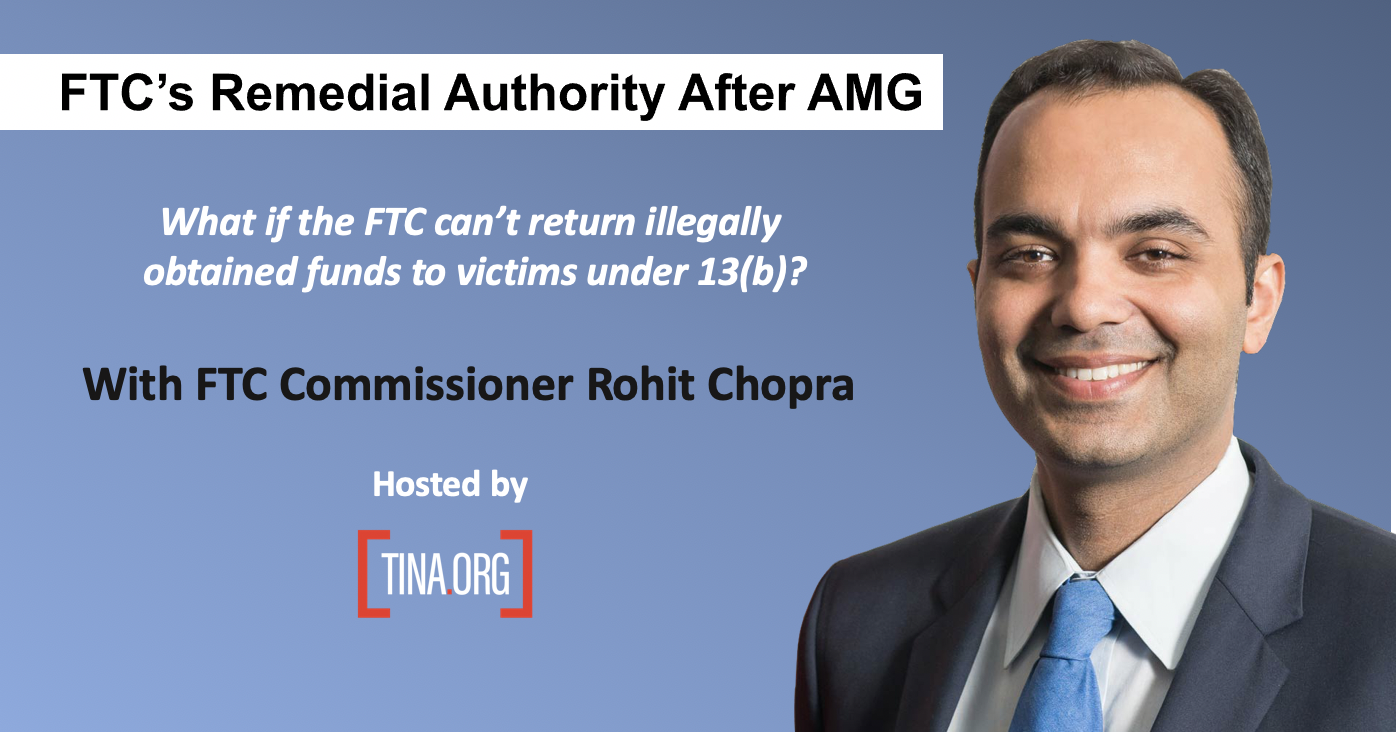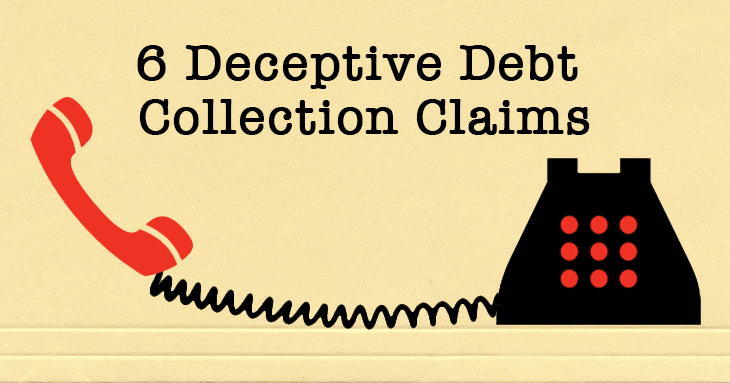
TINA.org Webinar: FTC’s Remedial Authority After AMG
In case you missed it, watch the webinar with FTC Commissioner Rohit Chopra.
Is your credit or debit card getting charged for something you didn’t want or that never arrived? Are you finding repeated monthly charges from Recurring offers or subscriptions that continue to bill you until you take steps to shut down the account. These types of offers put the onus on the consumer to remember and to take action, allowing a company to keep gathering in cash from forgetful or busy customers. Be wary of these types of offers, and remember to stop services you no longer want.s on your statements for products or services you returned or tried to cancel? Consumers are protected by federal regulations. The Fair Credit Billing Act covers credit card transactions. Debit cards are covered under the Electronic Funds Transfer Act. Consumers can also contact their A magical piece of plastic made by banks that is sent to your home (normally accompanied with countless pages of fine print disclosures) that allows you to buy virtually anything company or, if the charge relates to a debit card, they can contact their bank or financial institution.
Here’s how to report a problem to your credit card company or financial institution.
You can also fight a charge by contacting the merchant/creditor (i.e, the person or company who unfairly charged you). Here’s how:
For more information, see:
Disputing Credit Card Charges
Visa Chargebacks
Negative-Option Offers
In case you missed it, watch the webinar with FTC Commissioner Rohit Chopra.
Experts weigh in on how to avoid being a victim of these latest campus scams.
There are laws on what collectors can say or do, as the country’s top two debt buyers recently found out.


